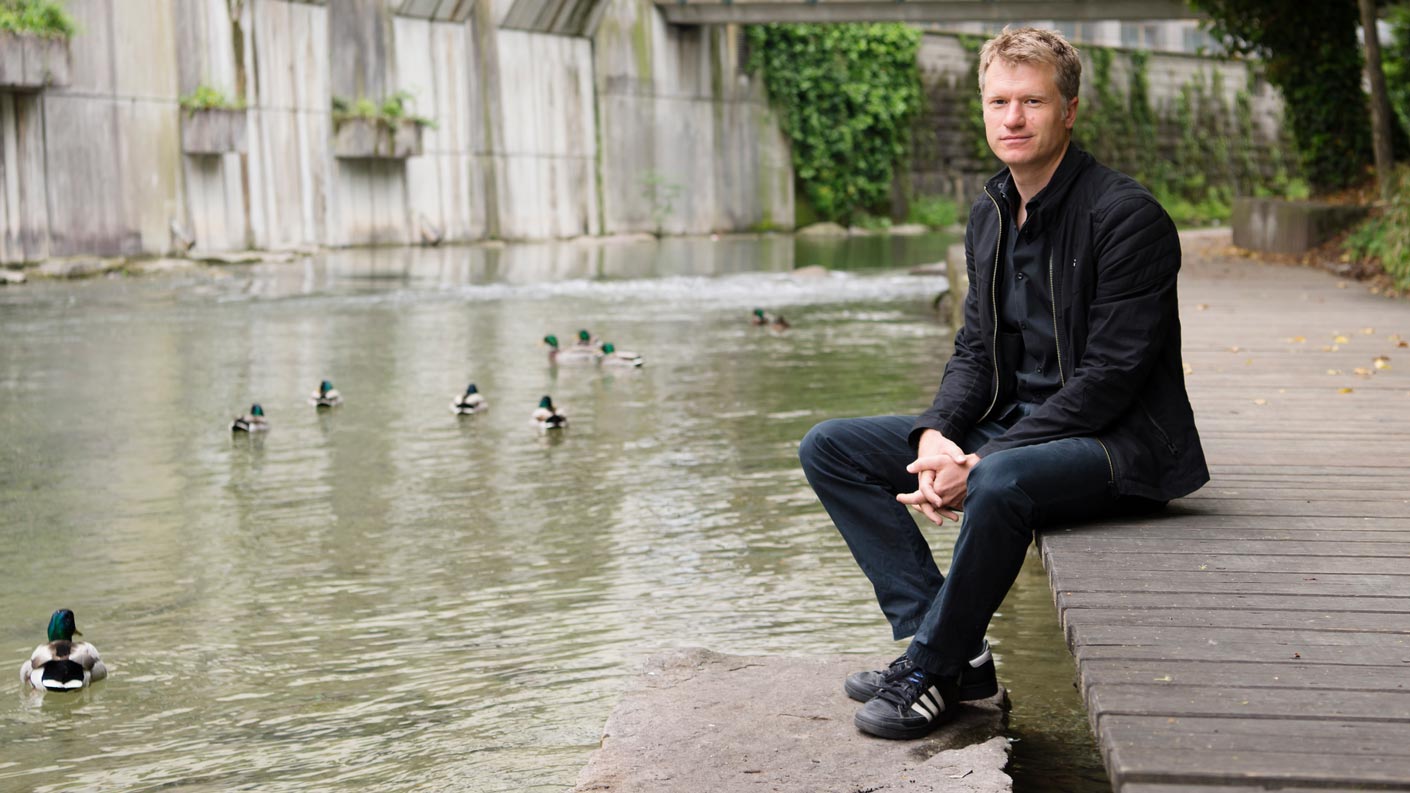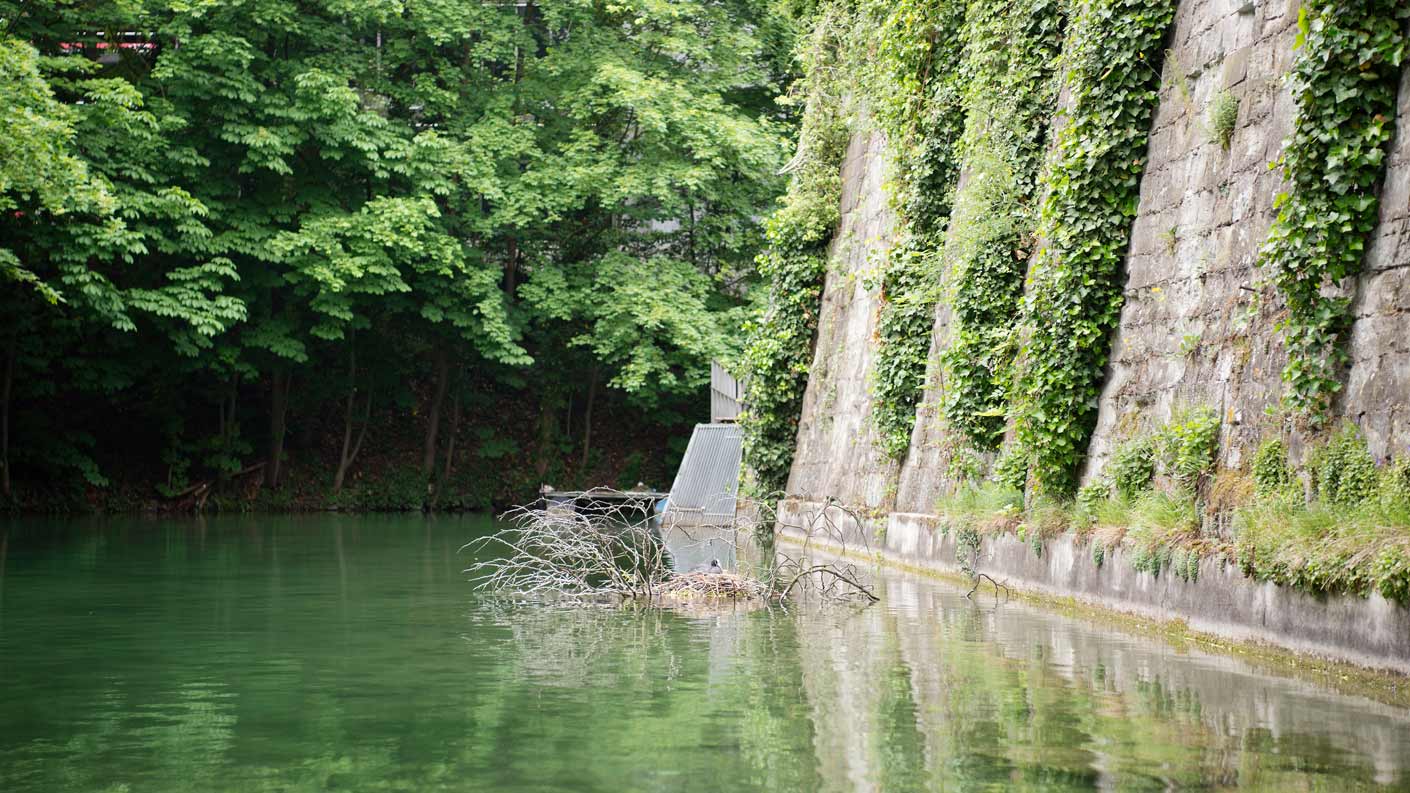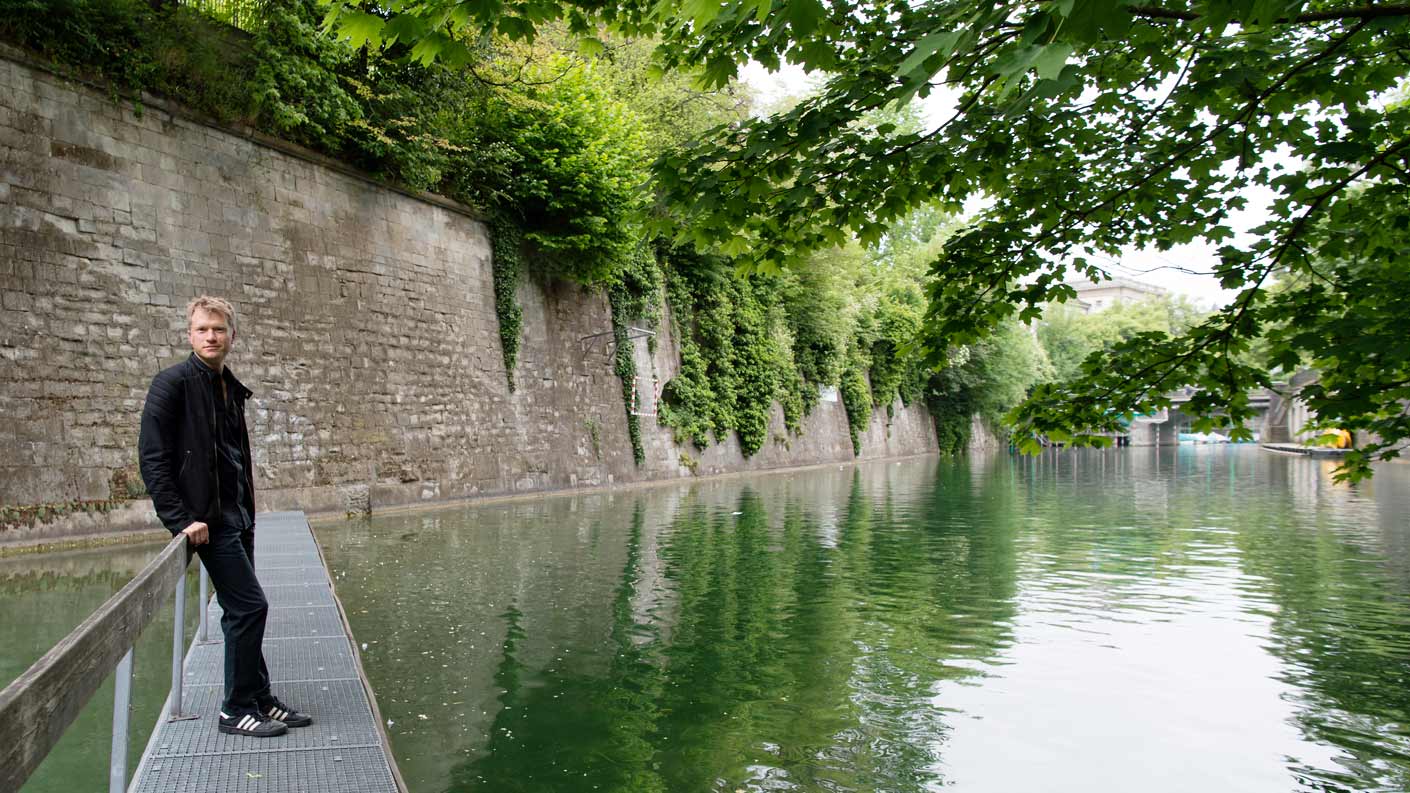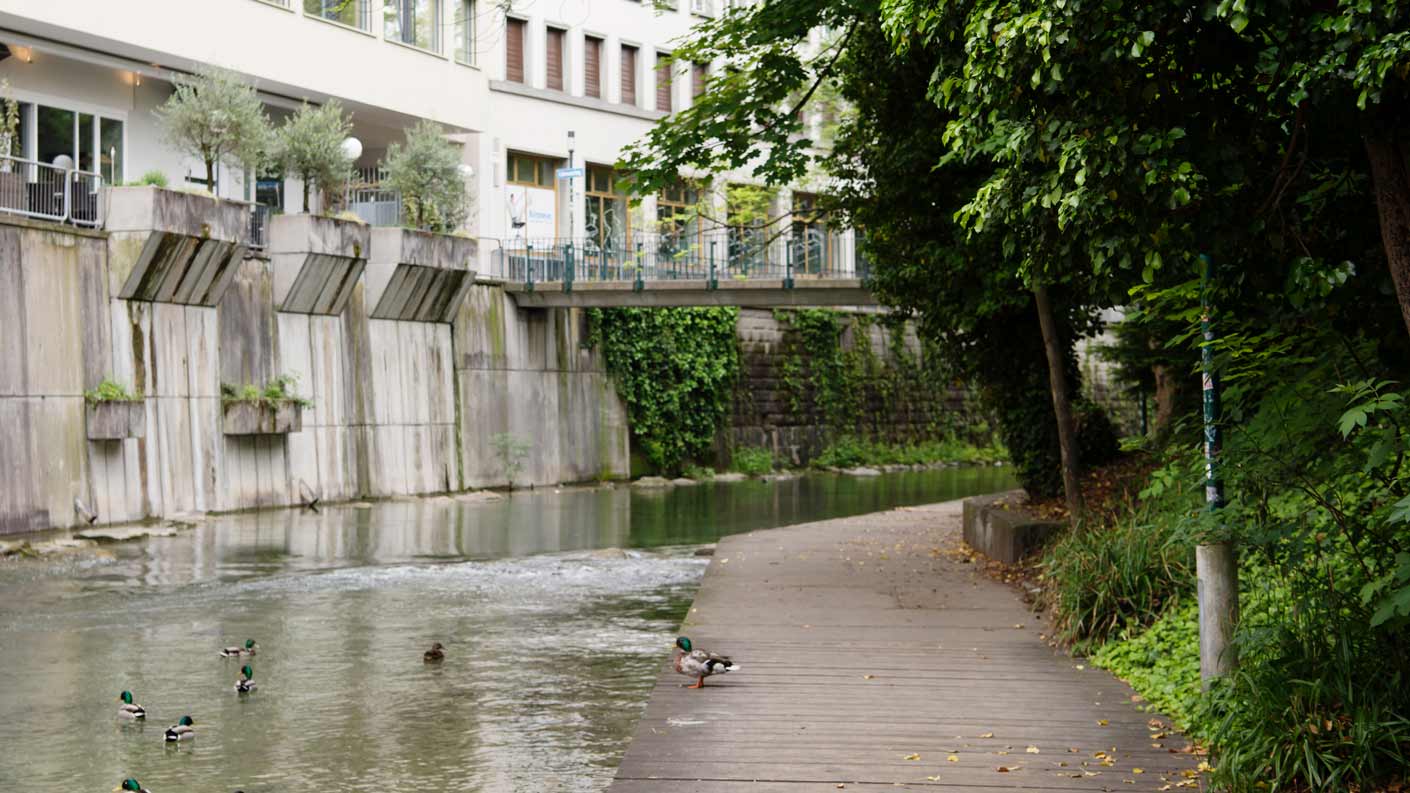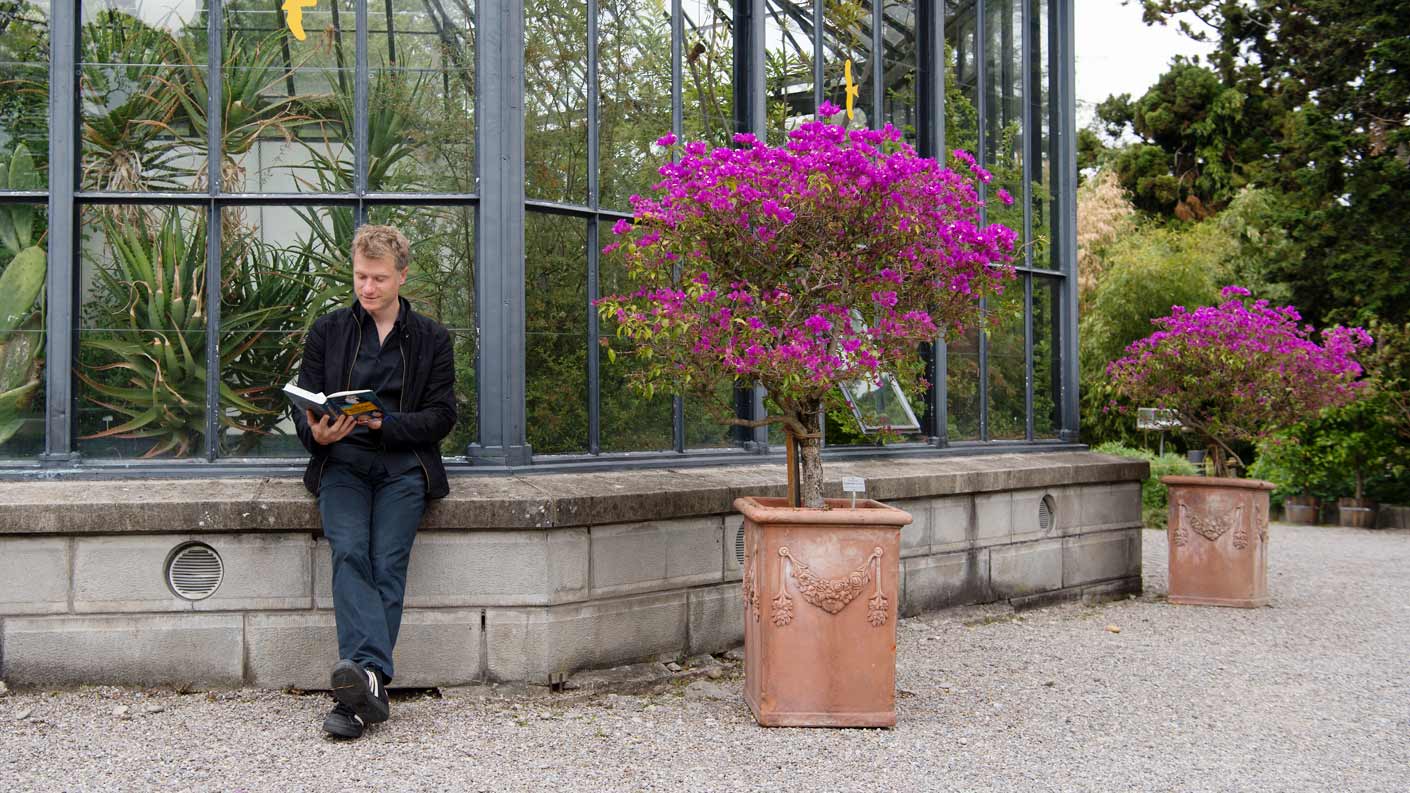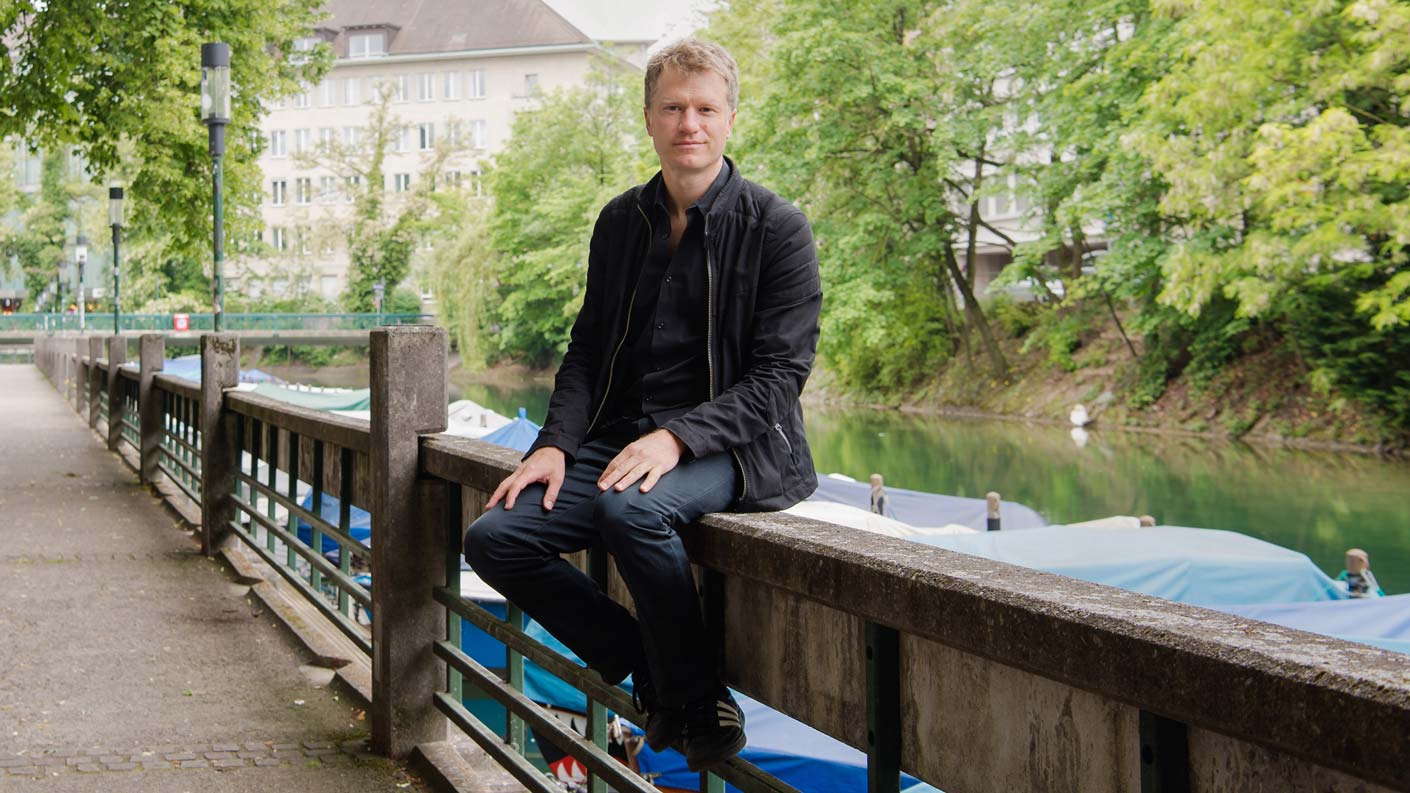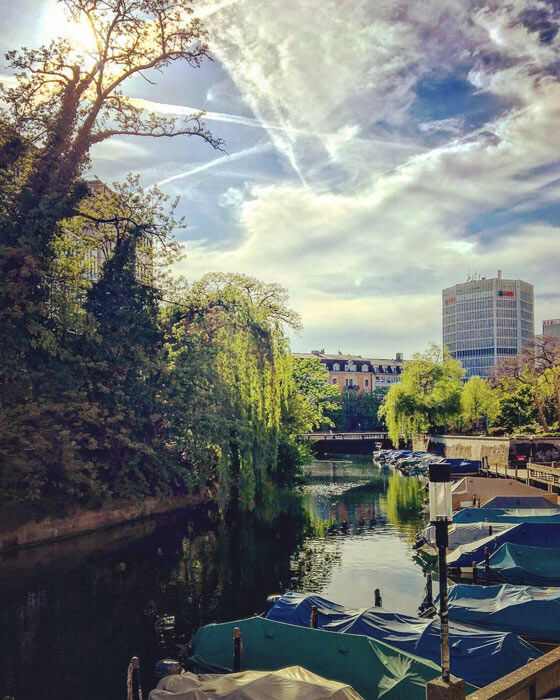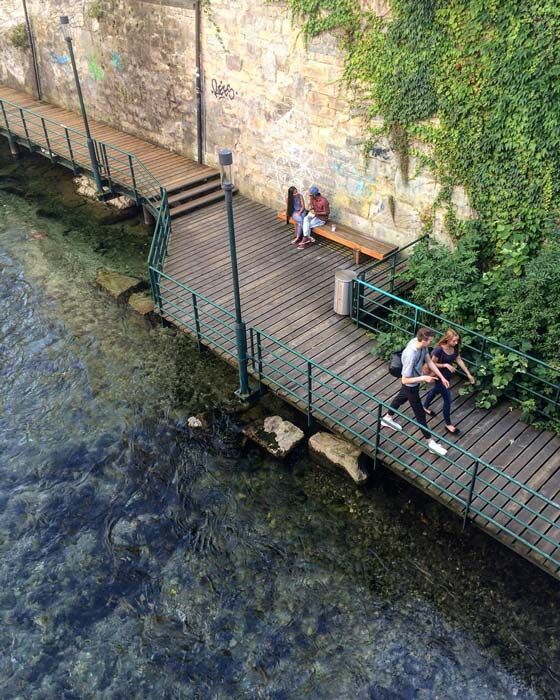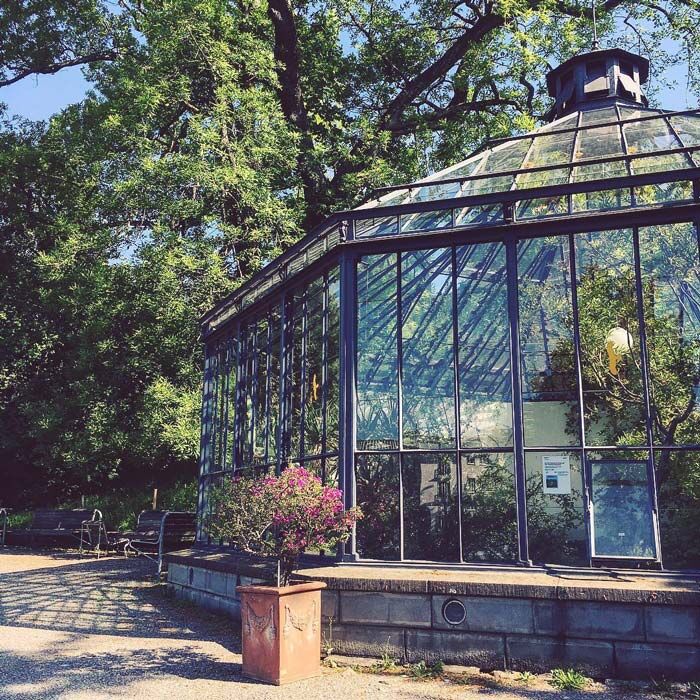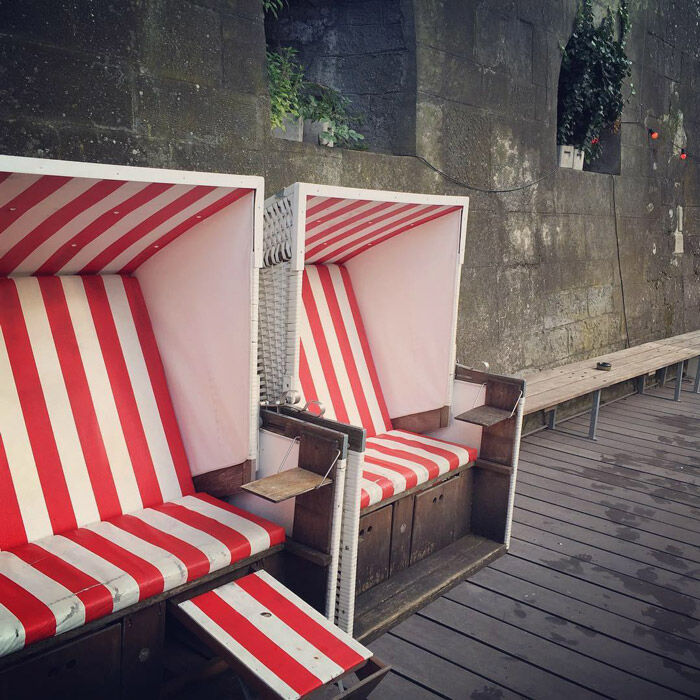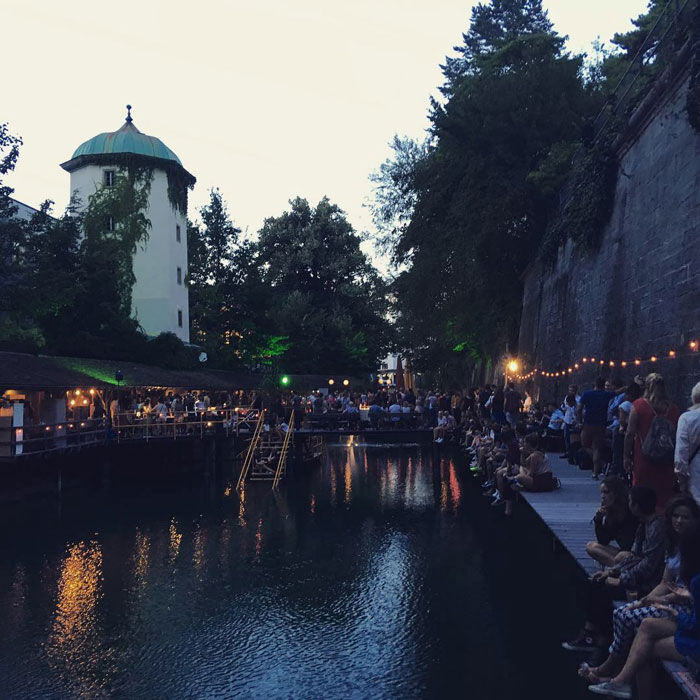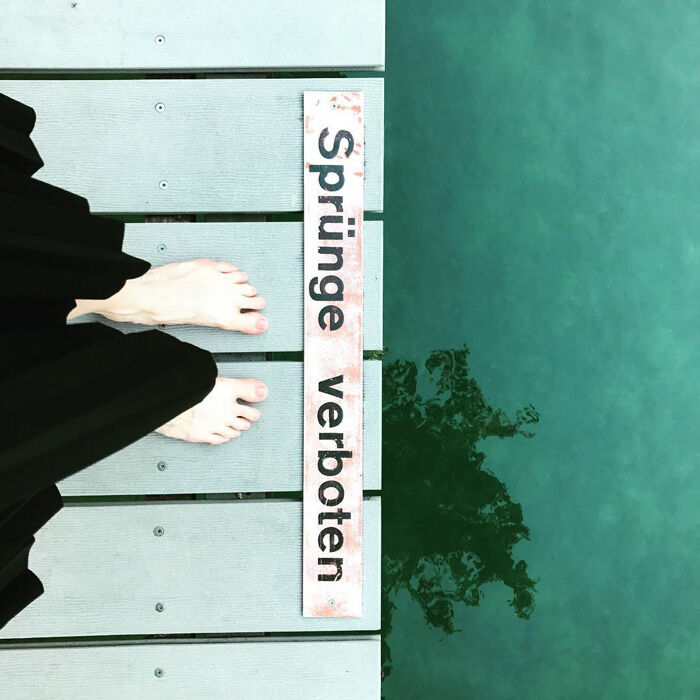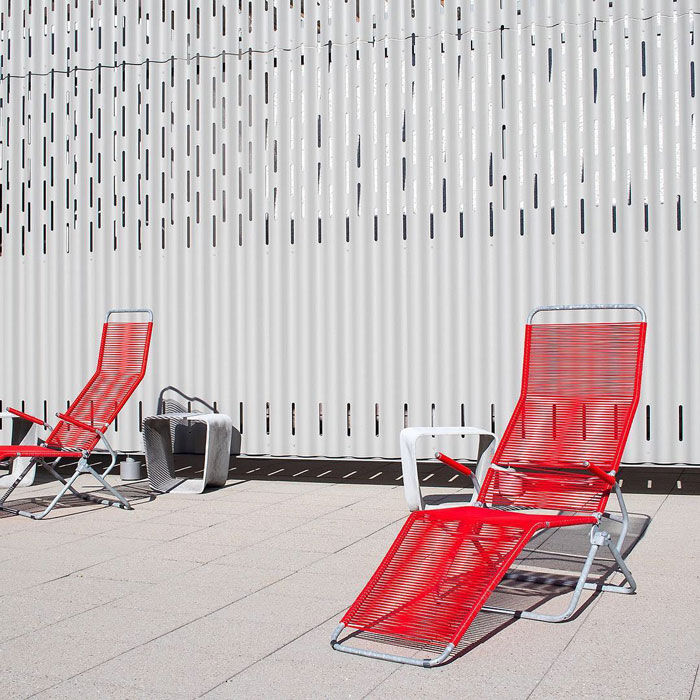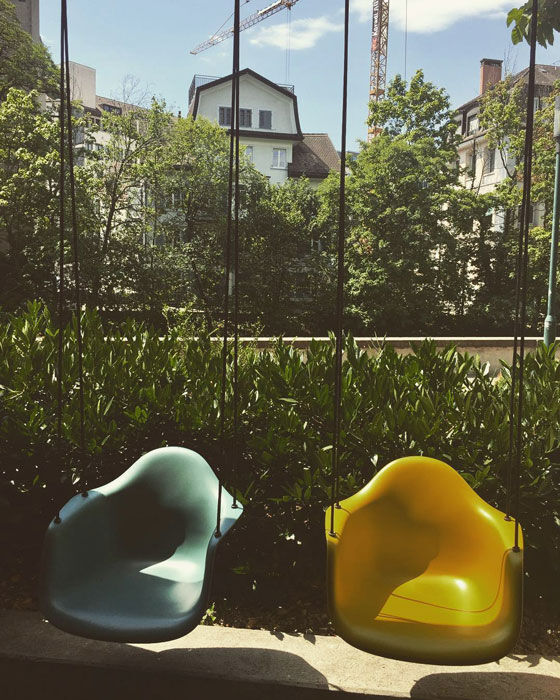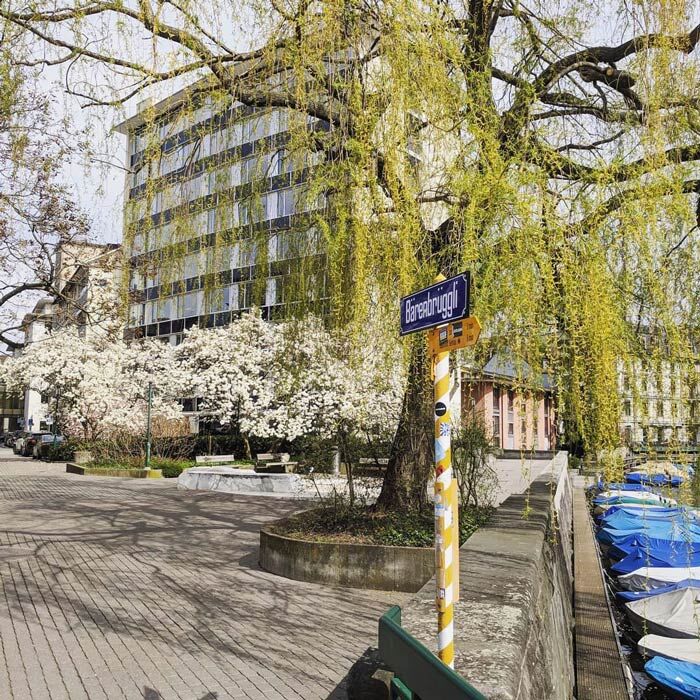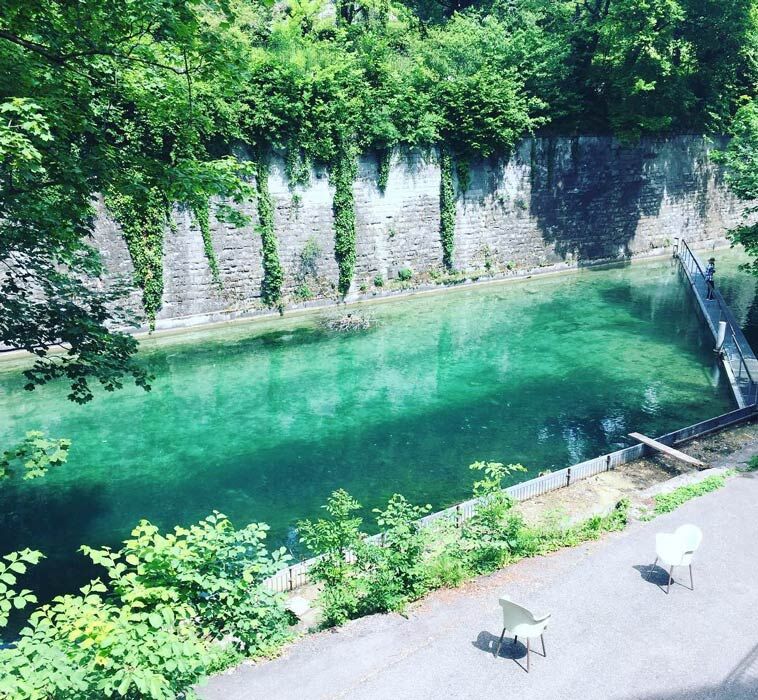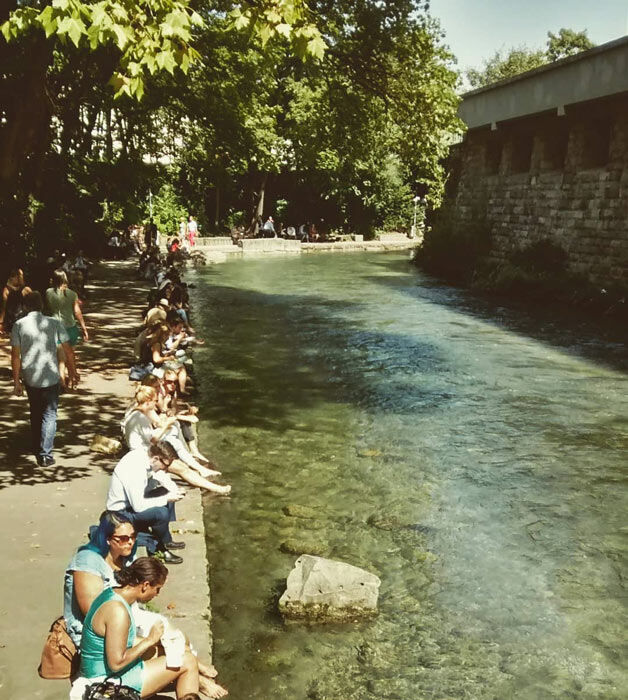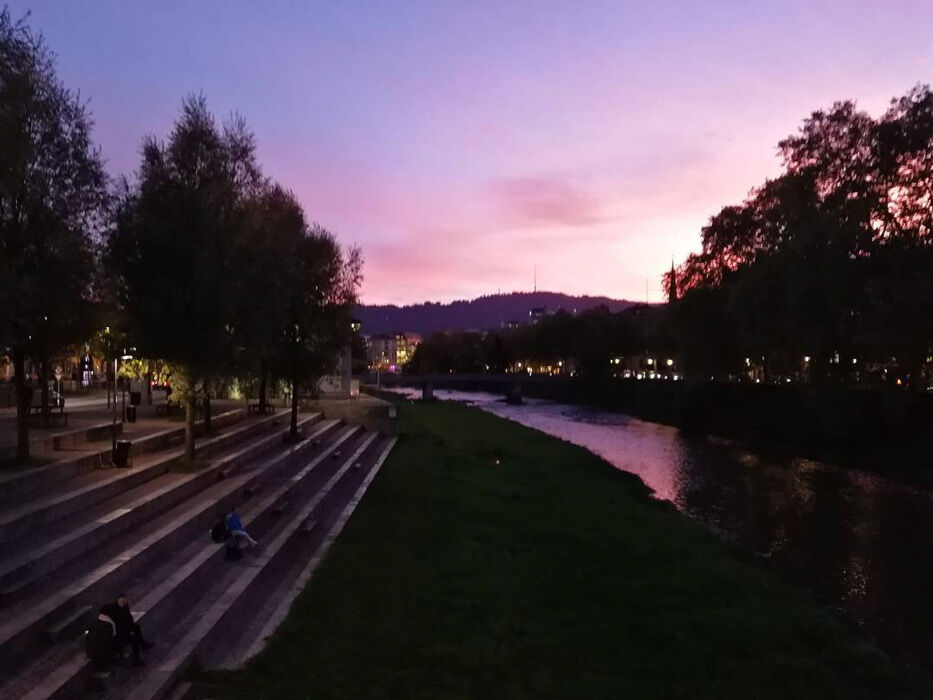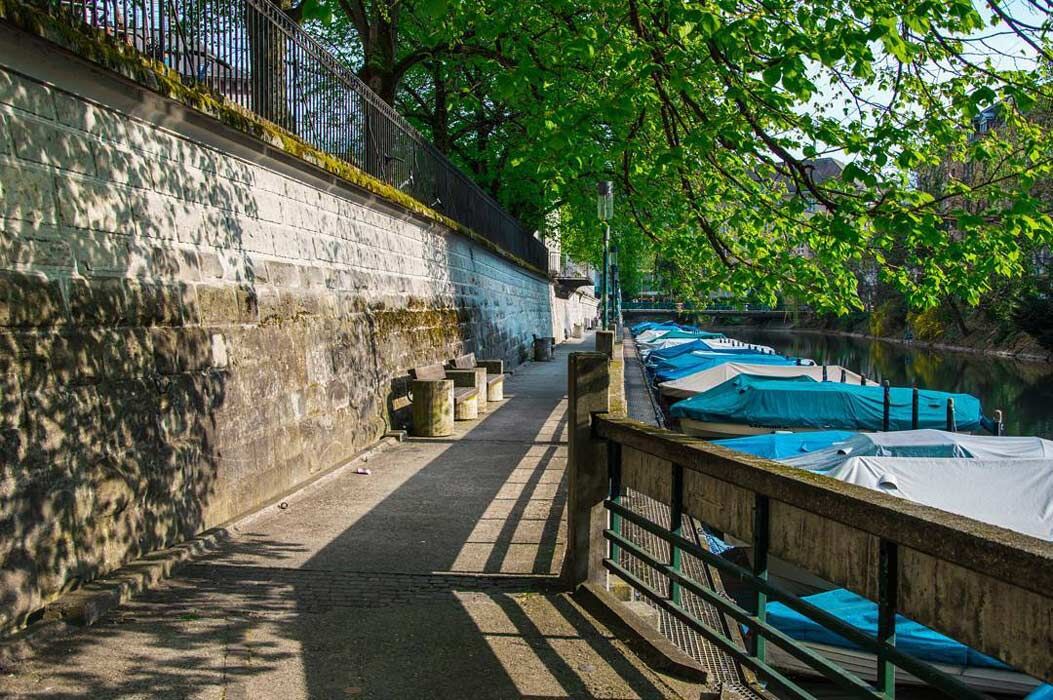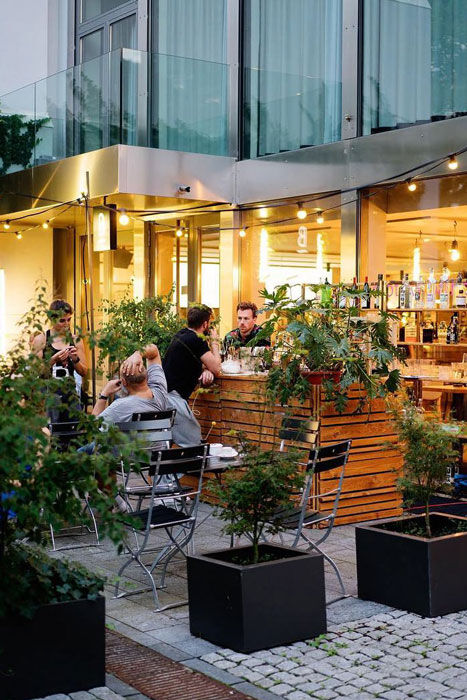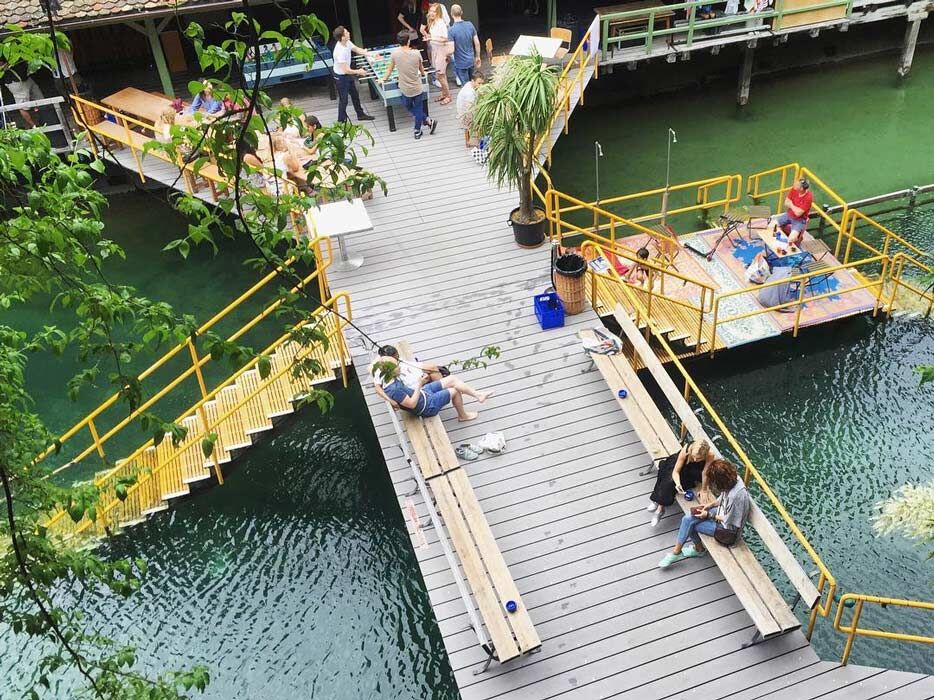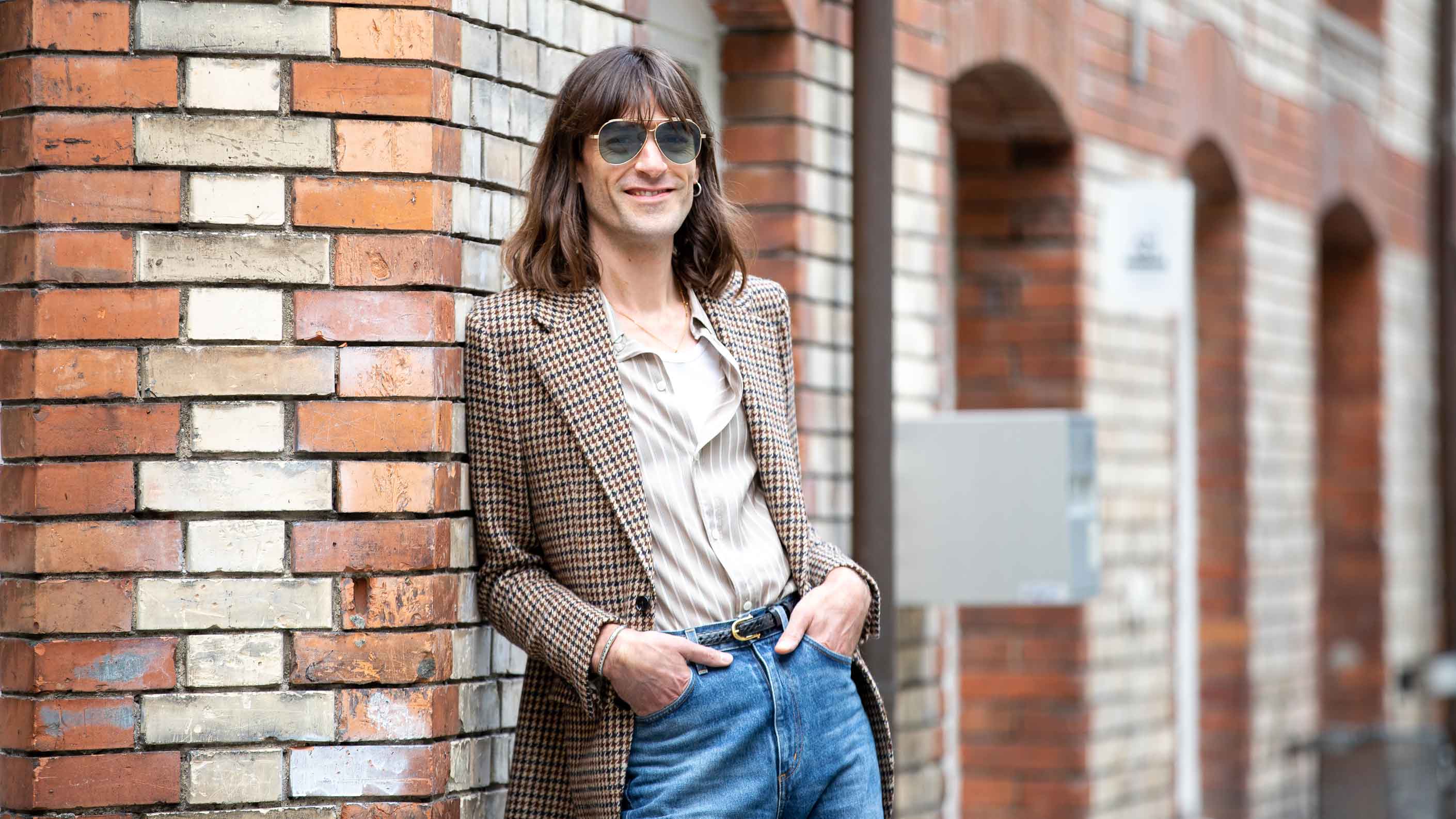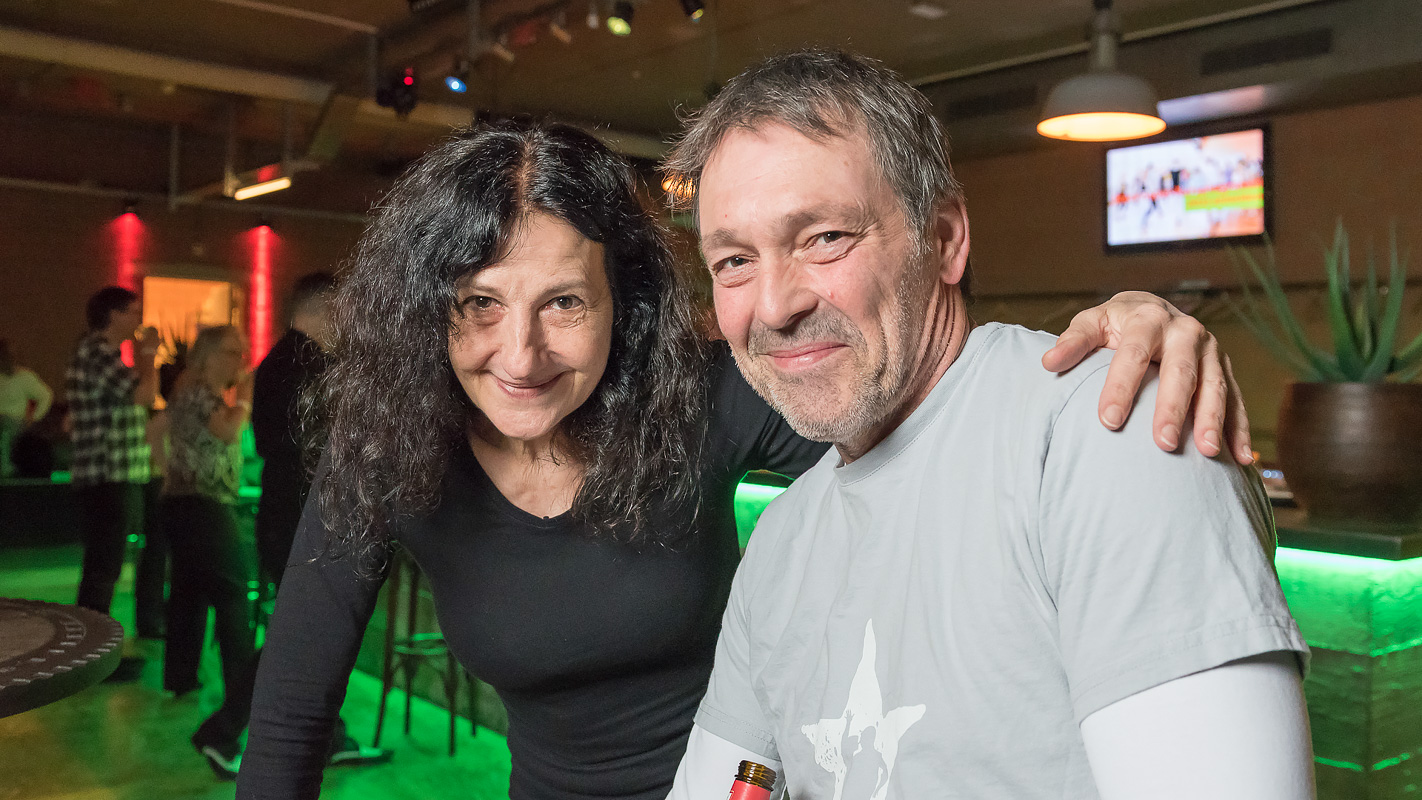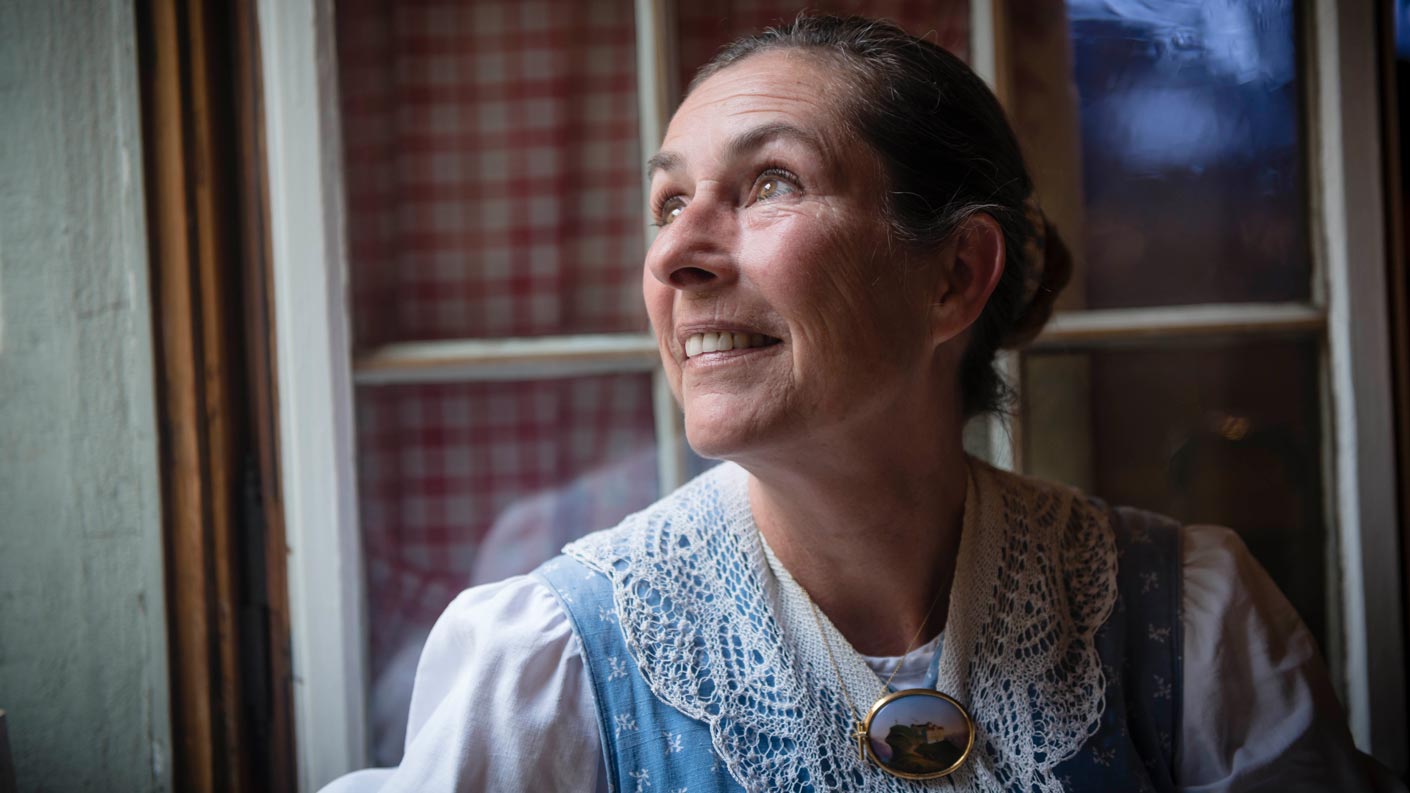Between the world of banks and idyllic village life
Award-winning Zurich author Jens Steiner has recently published his first children’s book. Titled The Sausage-End Detectives and the Secret of the Wheeled Suitcase, the narrative takes place around the Schanzengraben pedestrian zone, and is proving to be a hit with adults too – and not just because of its strong local connection.
Situated behind Zurich’s Paradeplatz square, the Schanzengraben is a world unto itself. As its waters flow calmly toward the River Sihl, a few dark-coloured fish swim amid the weeds. Jens Steiner sits on a park bench on the waterside promenade. It’s exactly where Olivia likes to sit. This little girl is one of the three protagonists of Jens’s latest book, The Sausage-End Detectives and the Secret of the Wheeled Suitcase (Die Bratwurstzipfel-Detektive und das Geheimnis des Rollkoffers).
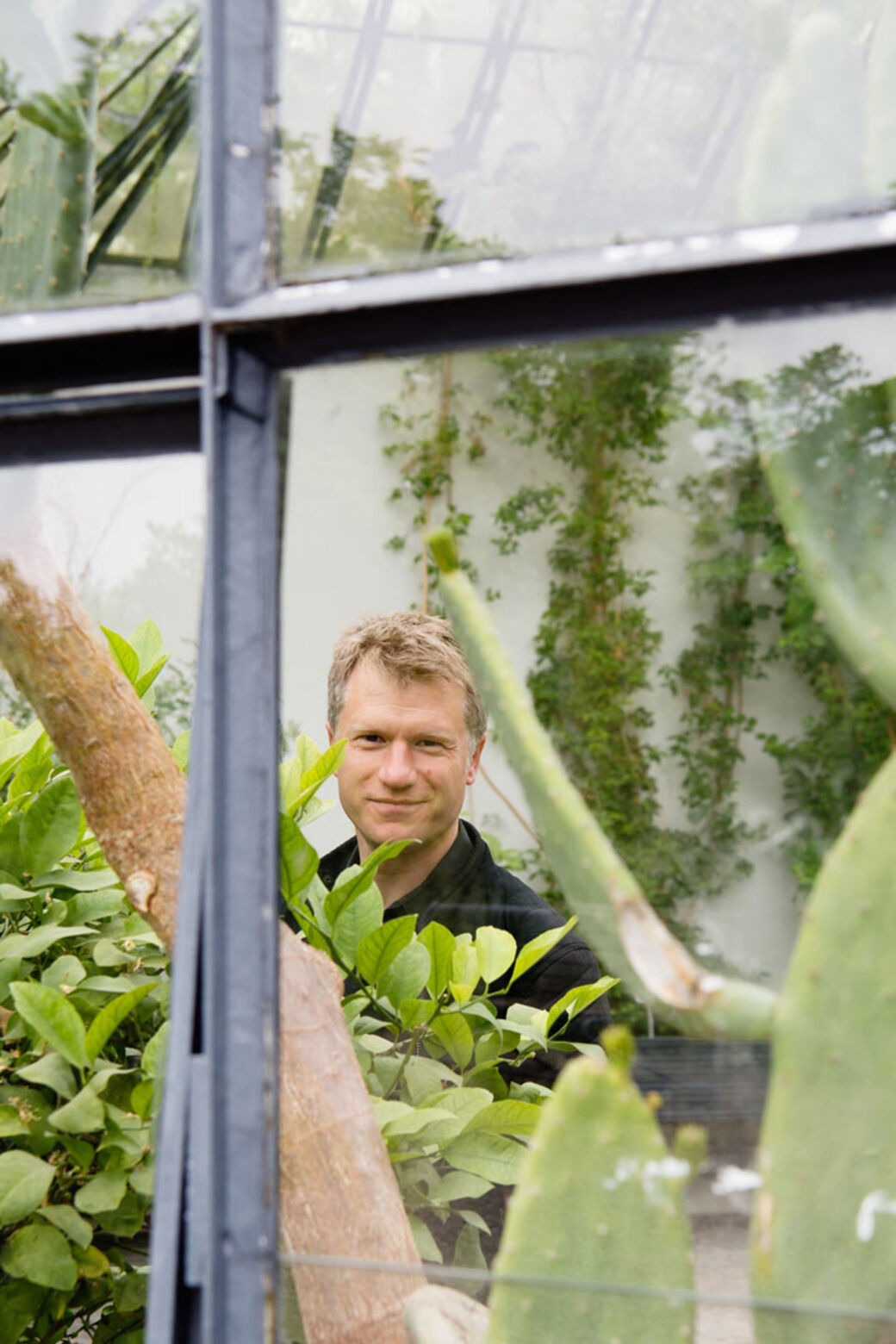
‘Many people are not aware that this canal used to be a moat, or that the Old Botanical Garden was part of the city’s fortifications,’ says Jens as he points to the historical walls. ‘You’d be hard pressed to find somebody who would notice those holes in the wall...’ – but we’ll come back to that later.
The canal used to be a moat and the Old Botanical Garden was part of the city’s fortifications.

Jens Steiner is an independent author who grew up in the village of Hausen am Albis and attended a grammar school in the Wiedikon district of Zurich. Aside from a few sojourns, he has lived in Zurich since completing his degree in German studies and philosophy. In 2011, the then 36-year-old published his début novel, Hasenleben, which was followed by Carambole in 2013. These works brought Steiner a great deal of attention and a clutch of awards, including the 2013 Swiss Book Prize. In addition to his novels, he has published short stories and radio plays – and now his first children’s book.
Schanzengraben on Instagram
It took some time before Jens decided to become a writer. His anxiety held him back, as did his family background. He comes from a distinctly blue-collar household: his father is an electrician and one of his brothers is a roofer. Being an author did not exactly fit this pattern, which is why Jens initially worked as a teacher and a reader at a publishing house.
It took some time before Jens decided to become a writer.
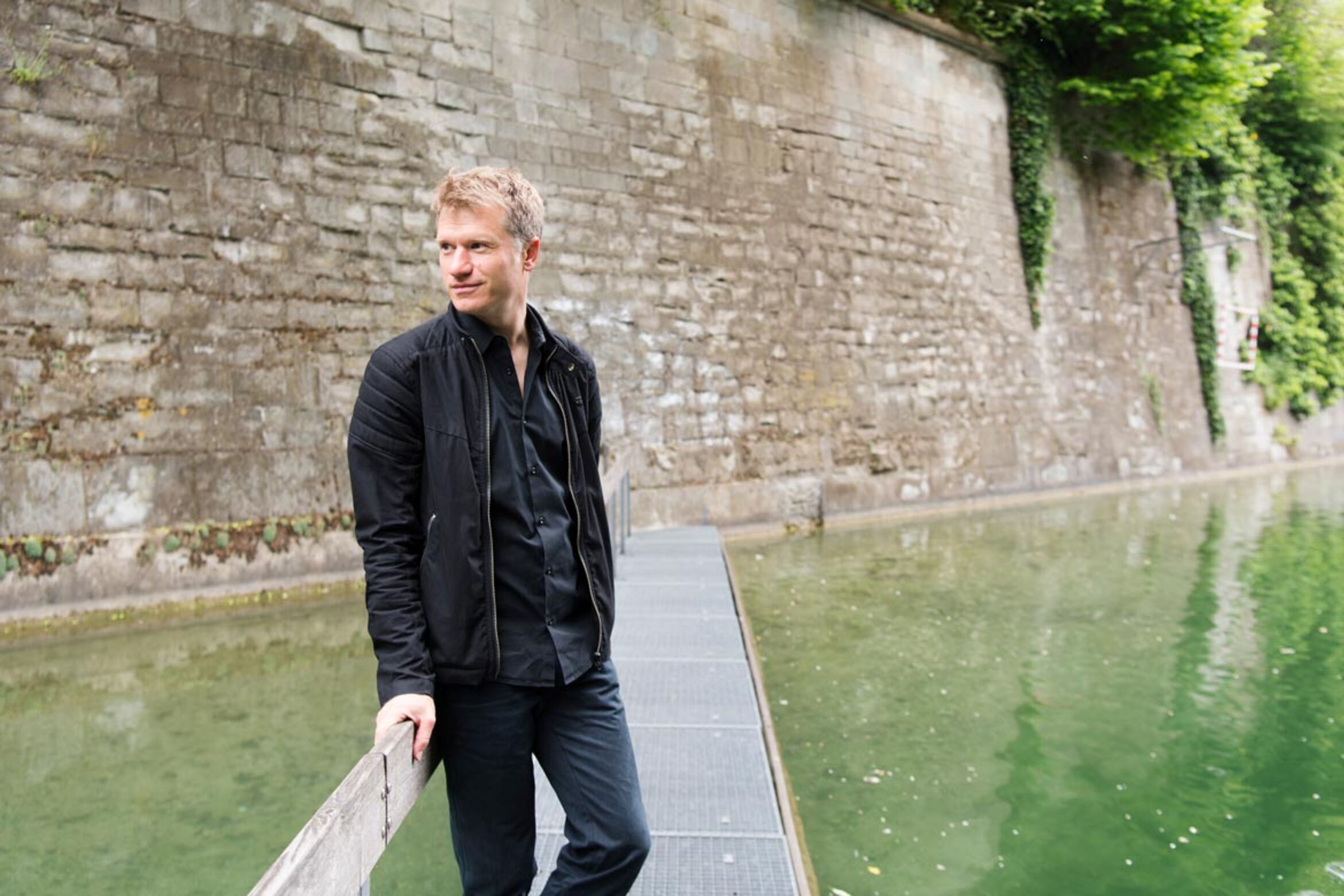
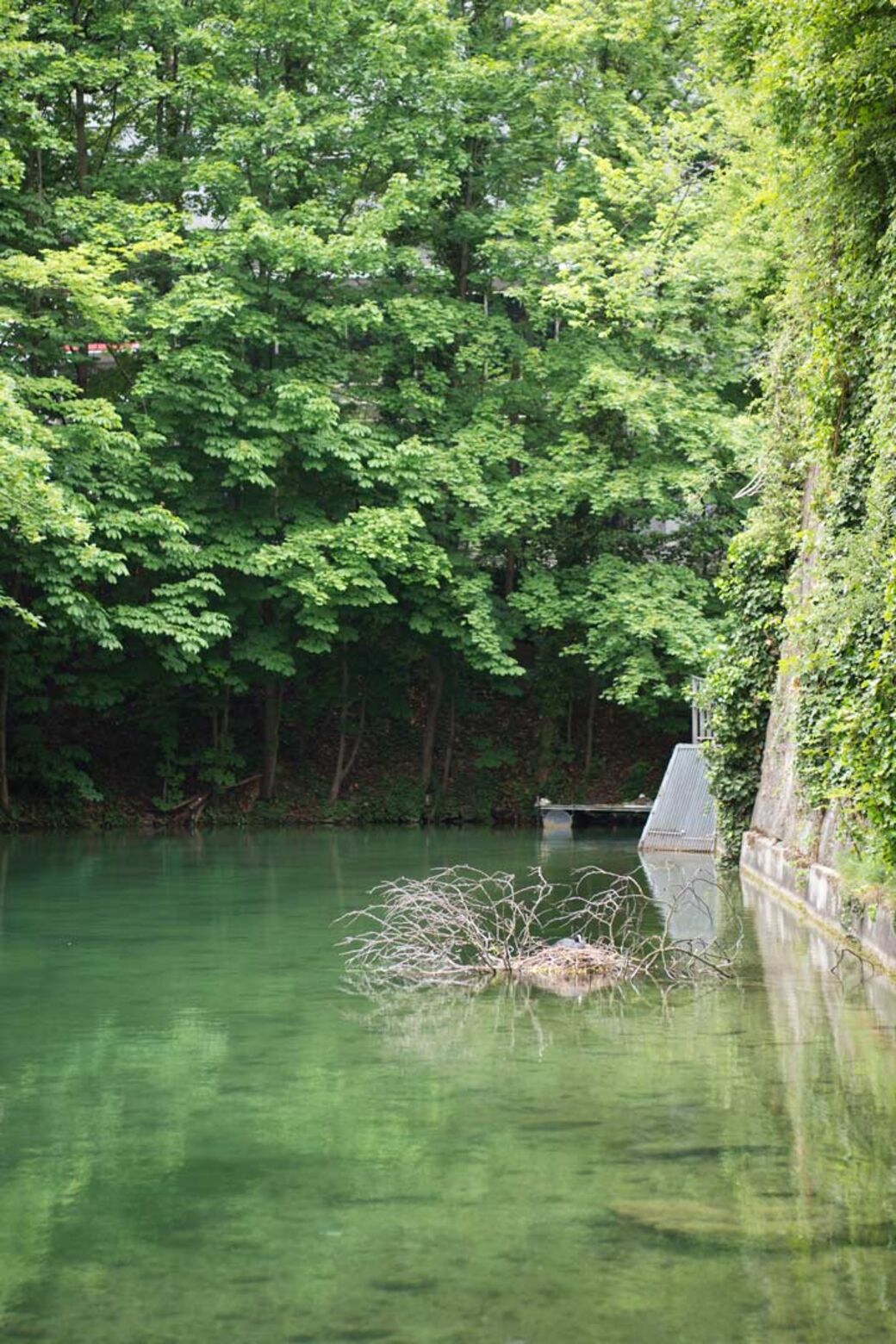
Jens now benefits from the experience he gained in these positions. One of his pupils to whom he gave extra tuition actually served as the inspiration for his children’s book. The boy lived on Gerechtigkeitsgasse, near the Schanzengraben. From his pupil, Jens learned that although this neighbourhood is often teeming with besuited men and women, few people actually live there. And those who do more or less all know one another. Jens’s imagination was gripped by the contrast between the anonymous, yet hectic banking world and the life of the residents with its village-like character.
This neighbourhood is often teeming with besuited men and women, but few people actually live here.

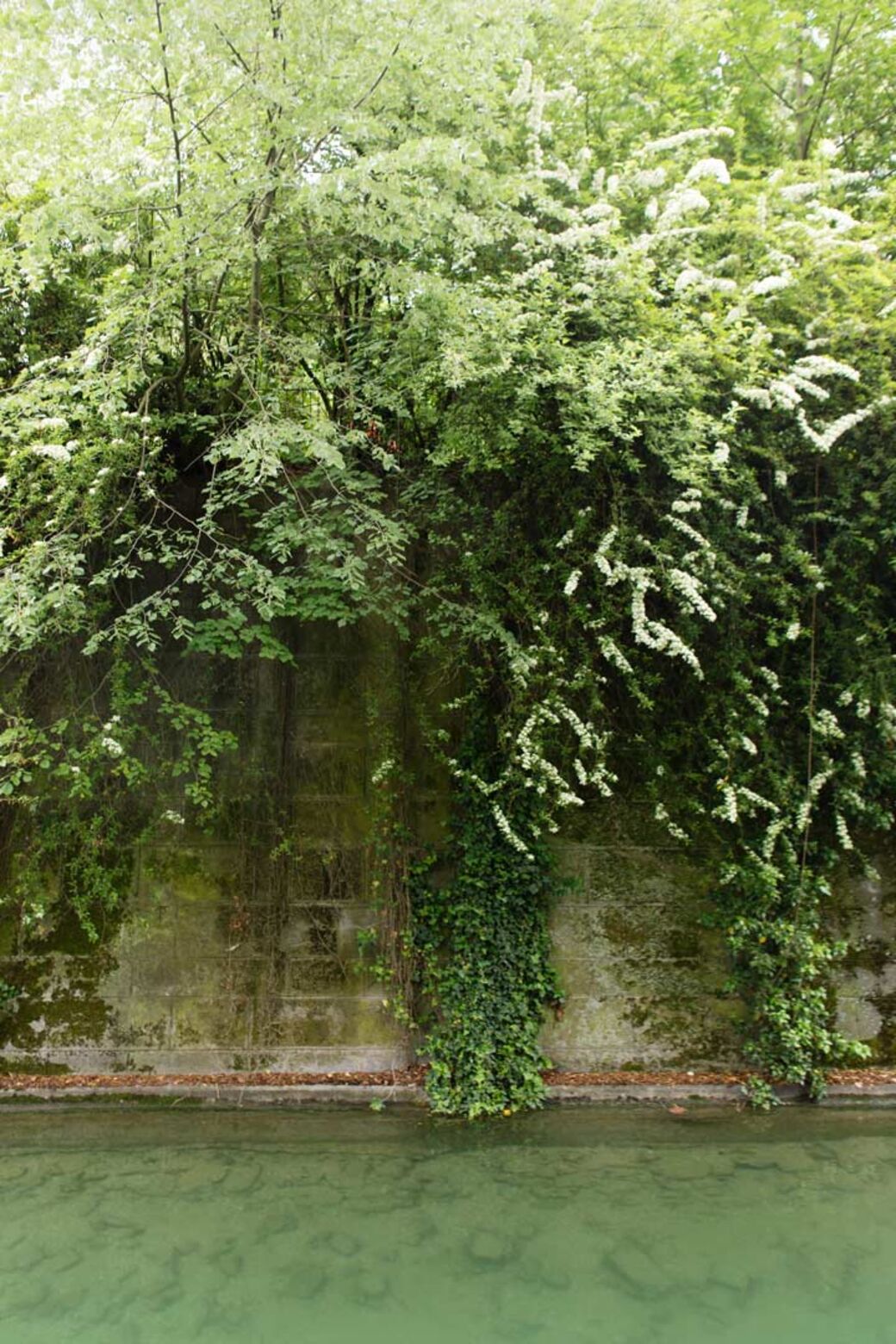
Last year, Jens took up the topic in earnest and created three schoolchildren: Clemens, Leo and Olivia. In addition to the three protagonists, Jens tapped into his childhood memories to bring to life an old man who roams the streets in rubber boots with a wheeled suitcase. Next, the former editor knew he had to add an element of adventure to the story. On his forays through the Schanzengraben neighbourhood, Jens’s attention was drawn to the aforementioned holes in the wall of the Old Botanical Garden. When he did some research into them, he was surprised by what he found. From this, a humorous, slightly odd detective story focusing on the parallel realities in the centre of Zurich took shape.
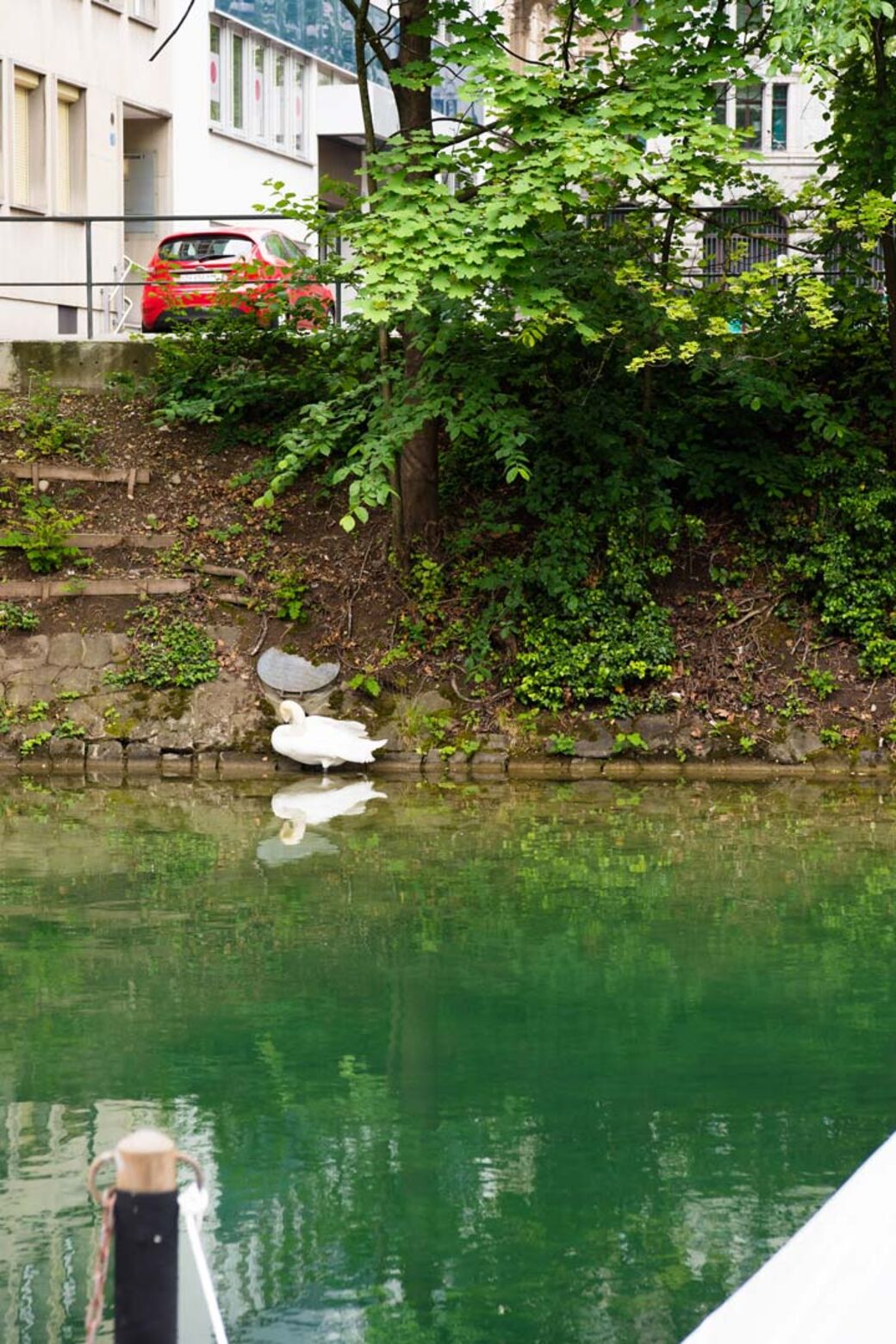
Jens’s books always address a basic point of conflict that is relevant to today’s society. ‘My first few novels grappled with rather bleak issues, such as the loneliness of modern life. Although my more recent works also concentrate on important issues, they are a little lighter and have a more welcoming tone.’ This is definitely true of his most recent novel, Mein Leben als Hoffnungsträger, in which he tackles the uncontrolled consumerism and wastefulness of today’s society, and of his first children’s book, which broaches the issue of money.
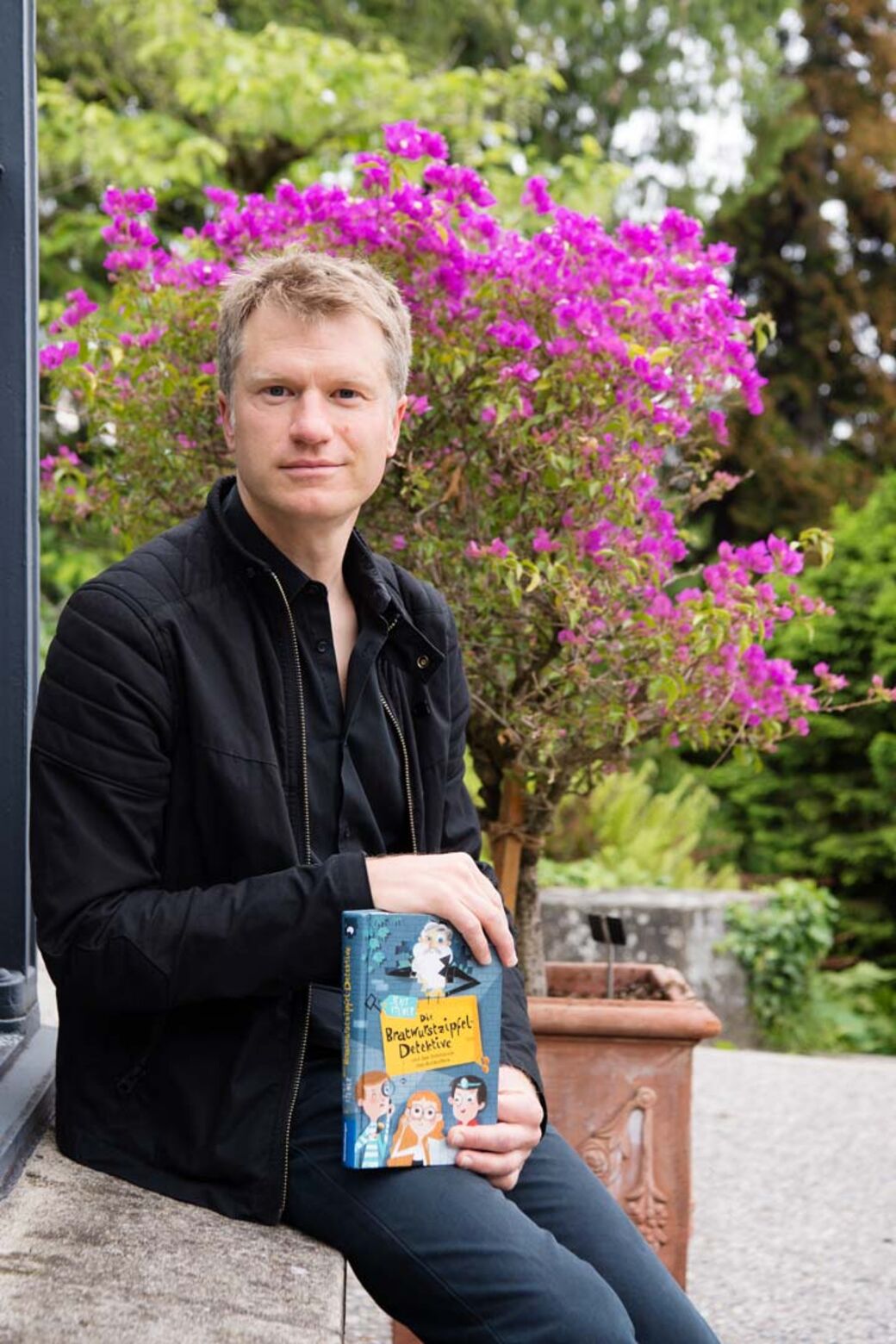
‘My mother confessed to me that Mein Leben als Hoffnungsträger was the first of my novels that she’d read to the end,’ says the author with a smile. She might enjoy his children’s book too, and not just because she originally did her apprenticeship at a bank. Although Jens wrote his latest story primarily for children, adults have also been captivated by the book, which depicts a seemingly well-known area of Zurich in a new light.
